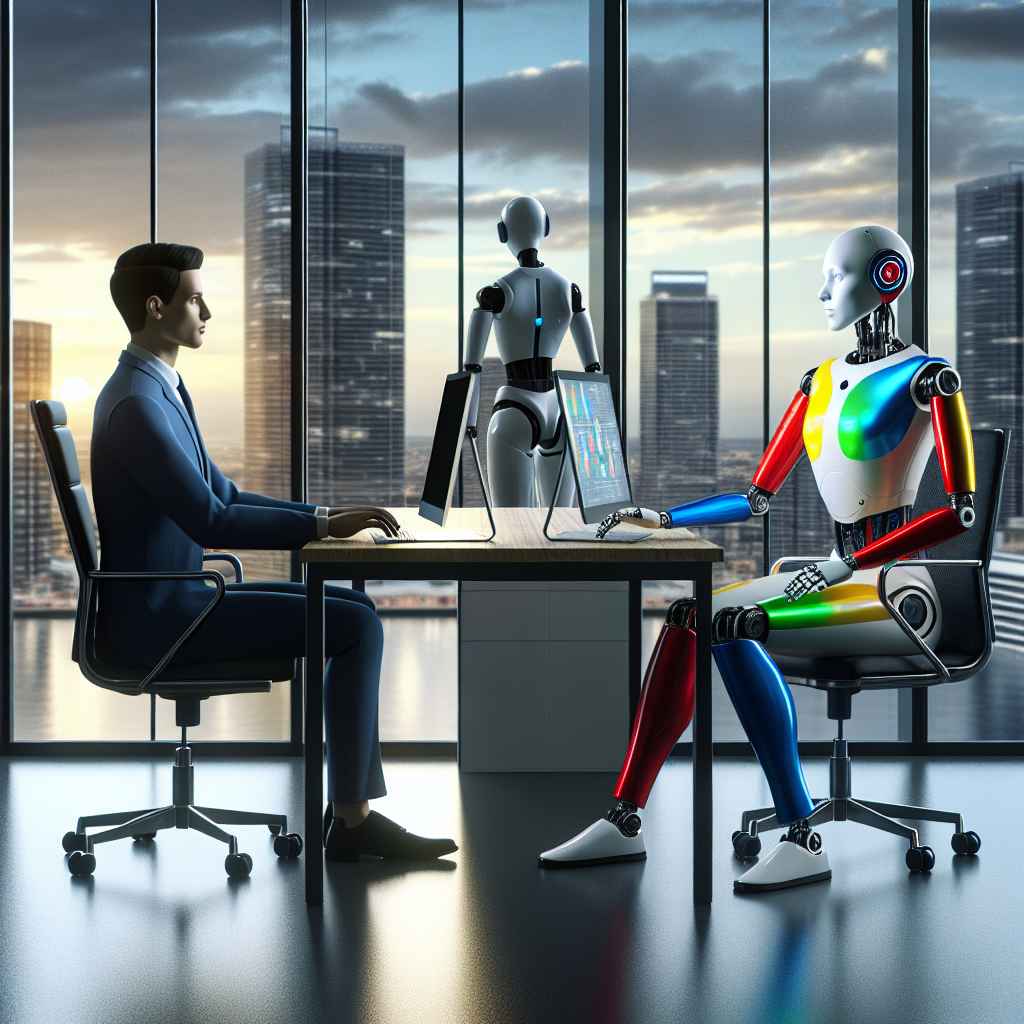Google’s Resolution for 2025: Catch Up to ChatGPT
In the rapidly evolving landscape of artificial intelligence, Google’s ambition to regain its foothold in the AI race is becoming increasingly clear. With the meteoric rise of OpenAI’s ChatGPT, the tech giant is now setting its sights on a significant transformation of its AI capabilities by the year 2025. In this blog post, we will explore Google’s strategies, the implications of this competition, and how this shift could shape the future of AI technologies.
The Rise of ChatGPT
Since its launch, ChatGPT has captivated users worldwide with its ability to understand and generate human-like text. The impressive natural language processing capabilities of ChatGPT have set a new standard in AI, prompting numerous businesses and consumers to shift their attention toward solutions powered by this technology. As a result, Google’s traditional dominance in search and information retrieval is being challenged like never before.
What Makes ChatGPT Stand Out?
The intriguing success of ChatGPT is attributed to several factors:
1. Conversational Skills: ChatGPT excels at maintaining context over extended dialogues, allowing for richer and more engaging interactions.
2. Versatility: Its ability to handle a wide array of topics makes it useful in various applications, from customer service to content creation.
3. User-Centric Design: OpenAI has prioritized user experience, constantly refining ChatGPT based on user feedback.
These attributes have not only established ChatGPT as a powerful tool but also a formidable competitor to Google’s AI offerings.
Google’s Response: A Strategic Shift
In light of ChatGPT’s success, Google is pivoting its AI strategies to enhance its own offerings. The company recognizes that to maintain its leadership position, it needs to develop AI that can rival ChatGPT’s capabilities. This shift includes several key areas of focus.
1. Investment in AI Research
Google has announced plans to increase its investments in artificial intelligence research. The aim is to accelerate the development of advanced AI models that can compete directly with ChatGPT. By pouring resources into research, Google hopes to innovate and expand the range of its AI applications.
2. Enhancing Google Assistant
Google Assistant, while already a popular voice assistant, lacks the conversational depth and contextual understanding of ChatGPT. Google is working on refining its AI-driven assistant to make it more interactive and context-aware. By doing so, the company aims to provide users with a more satisfying and holistic experience.
3. Leveraging Data
With an extensive database of user interactions and search patterns, Google has a unique advantage when it comes to training its AI models. The company plans to utilize this data to improve its language models, ensuring that they are not only competitive but also tailored to meet the specific needs of its users.
Implications of Google’s AI Transformation
As Google gears up to catch up to ChatGPT, the implications of this transformation will be far-reaching. Here are a few potential outcomes we can expect:
1. A More Competitive AI Landscape
Google’s renewed focus on AI will likely lead to increased competition within the industry. Other tech giants may also feel the pressure to innovate and improve their AI offerings, leading to a surge in advancements across the board. This will not only benefit businesses but also consumers, who will have access to more sophisticated technologies.
2. Enhanced User Experience
As Google improves its AI capabilities, users can expect a more refined experience across its platforms. Whether it’s using Google Assistant or searching for information, the integration of advanced AI will likely lead to faster, more accurate, and contextually relevant results.
3. Ethical AI Development
With increased focus on AI comes the responsibility to ensure ethical development practices. Google has been under scrutiny in the past for its handling of AI technologies, and there is a growing expectation for companies to implement ethical frameworks in their AI development processes. We can anticipate that Google will prioritize ethical considerations in its AI initiatives, leading to a more responsible approach to AI technology.
The Future of AI in 2025 and Beyond
Looking ahead to 2025, the landscape of artificial intelligence is poised for dramatic change. Regardless of the outcome of Google’s endeavors, one thing is clear: AI will continue to shape the way we live, work, and interact with technology. Here are some trends we can anticipate in the near future:
1. Seamless Integration of AI
As AI technologies mature, we can expect a seamless integration of AI in everyday applications. From enhanced search capabilities to smarter home devices, AI will become a fundamental part of our daily lives.
2. More Human-like Interactions
The quest for creating more human-like AI interactions will drive significant advancements in natural language processing. We can expect conversational agents to become even more sophisticated, understanding nuances, emotions, and context better than ever before.
3. Cross-Platform AI Solutions
The future will likely see a rise in cross-platform AI solutions that can operate seamlessly across devices and applications. This interconnectedness will provide users with a unified experience, making technology feel even more intuitive and user-friendly.
Conclusion
As Google embarks on its mission to catch up to ChatGPT by 2025, the stakes are high. The competition in the AI space is heating up, and the outcomes will shape the future of technology in profound ways. With a commitment to innovation, investment, and ethical practices, Google aims to not only reclaim its position in the AI market but also enhance the user experience for millions around the globe.
As we watch this unfolding battle in AI development, it will be fascinating to see how these advancements impact our lives. One thing is certain: the race to innovate will continue, and we are all set to benefit from the outcomes of this exciting journey into the future of AI.



